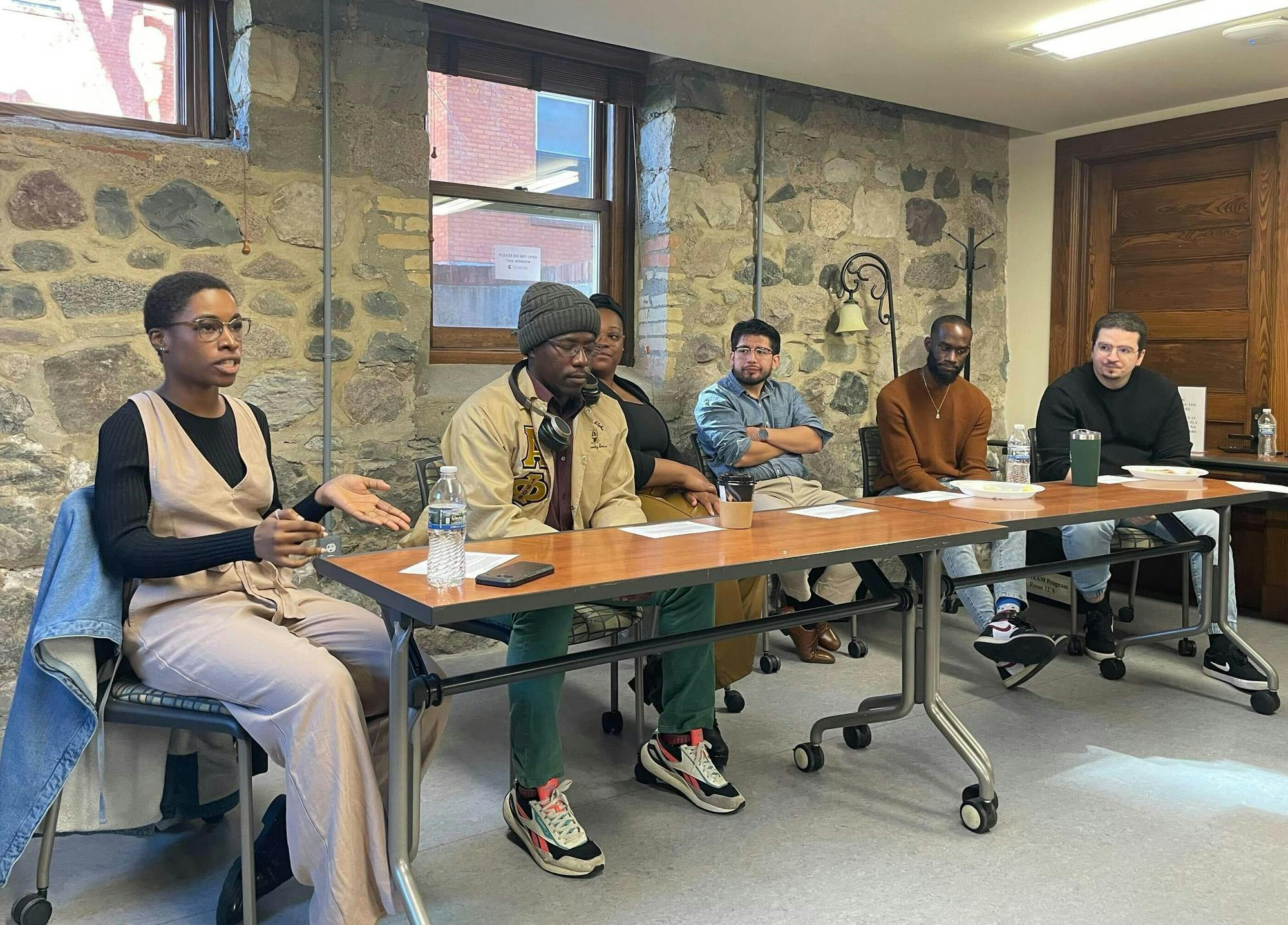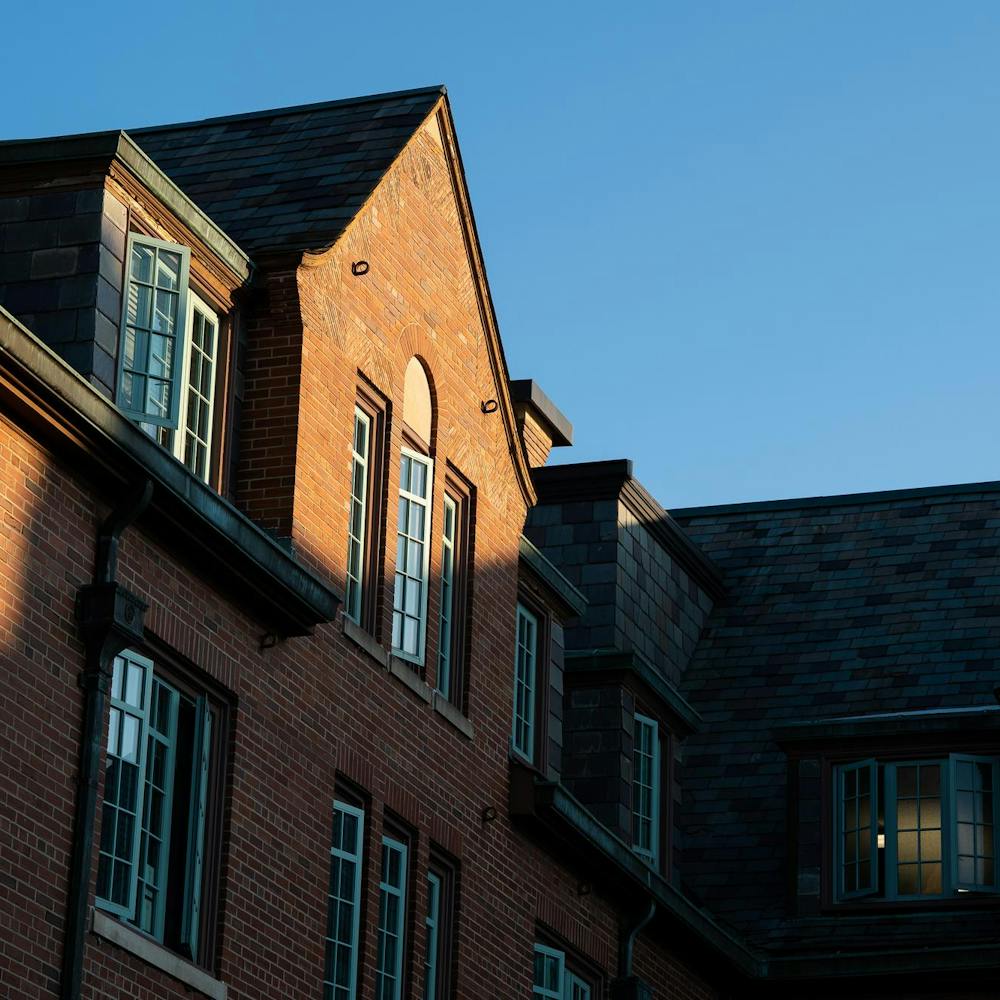A panel of six first-generation graduate students spoke to students Thursday as part of First-Generation Week at MSU.
The event, developed in collaboration with the MSU Graduate School and First-Generation Week panel, aimed to share the experiences of first-generation graduate students and offer advice to those considering graduate school.
Associate Dean Terah Chambers opened the event by explaining that graduate students make up about 25% of all students on campus. She said graduate student success is part of her responsibility, with the panel being an informational source for potential first-generation graduate students.
"This is a population that may not always be seen on campus, and in that vein, first-gen graduate students are also a really important population to be thinking about," Chambers said.
Chambers, who moderated the panel, started the discussion by asking the graduate students some predetermined questions before opening it up to the audience.
She asked each panelist whether they had always known they would attend graduate school, to which everyone said they had not.
Chambers said deciding to attend graduate school later in an undergraduate career is typical, especially for first-generation students, and does not place students behind others who made that decision sooner.
"It's very common, especially if we don't have role models in our families that can tell us about these pathways," she said.
One of the panelists was fourth-year doctoral political science student Raymundo Lopez. Growing up in the foster care system, Lopez said he saw communities that are historically disenfranchised experience systematic barriers.
It was once he entered his undergraduate program during the Trump administration that he decided to be more intentional about his political science degree and go into research, he said. This research eventually guided him toward a graduate program.
"I eventually came to the realization, 'OK, I will do it, but I'll do it on my own terms,'" Lopez said. "If you shape your values and your direction around the PhD, it's completely feasible. You'll be the happiest person you can be."
In response to Chambers asking the panelists what had surprised them most about graduate school, Tiyanna Peterson, a second-year education policy doctoral student, said the time commitment was a large adjustment. She said she knew the program would be a lot of work, but didn’t realize how much — and had to learn the hard way.
"I came into this program at 31 having already established a life, having family routines, having close friends for decades, so trying to balance maintaining relationships and family structures and giving my all to this program really surprised me with how much it would take out of me," Peterson said.
When questions were opened to the audience, a student asked if any panelists had taken a gap year before attending graduate school.
Danielle Cadet, a second-year human development and family studies doctoral student, said she did take a gap year. Professional experience gained during that time can provide valuable skills which can be applied to graduate school work, she said.
"Having opportunities to work first is really helpful, especially when I talk about theories, because a lot of students, I noticed, struggled to grasp theory because they can't actually place a scenario," she said.
Another attendee asked if any of the panelists were under assistantships or similar funding situations, to which all responded that they were.
Antonio White, a sixth-year neuroscience doctoral student, said he is currently under an assistantship and helps teach a class.
"The benefit of that is if you are looking to become a professor or a teacher in some capacity, those experiences help you gain the certain skills to become a teacher," White said. "Additionally, they typically cover your expenses for your stipend for that academic semester. Not the full year, but just the academic semester."
One more attendee asked panelists about the timeline between application and acceptance, and what that process looks like.
Support student media!
Please consider donating to The State News and help fund the future of journalism.
Darren Dabose, a third-year education policy doctoral student, explained that the process of searching for potential scholars to work under is long but important to get right. Before jumping into the application process, he said it's important to understand a certain scholar’s research interests and do the homework before applying.
"Before you even engage in the process, do your due diligence a year in advance just to make sure that you're talking with these people," Dabose said.
The panel ended with many encouraging attendees to pursue graduate studies.
"We need you," Dabose said. "You bring so much to this space, to the academy. Our world is burning right now, literally, and so what better group? What better folks to do this than people who are breaking these barriers as the first in their families to go to school?"
Discussion
Share and discuss “Panel shines light on first-generation graduate student experiences at MSU” on social media.







